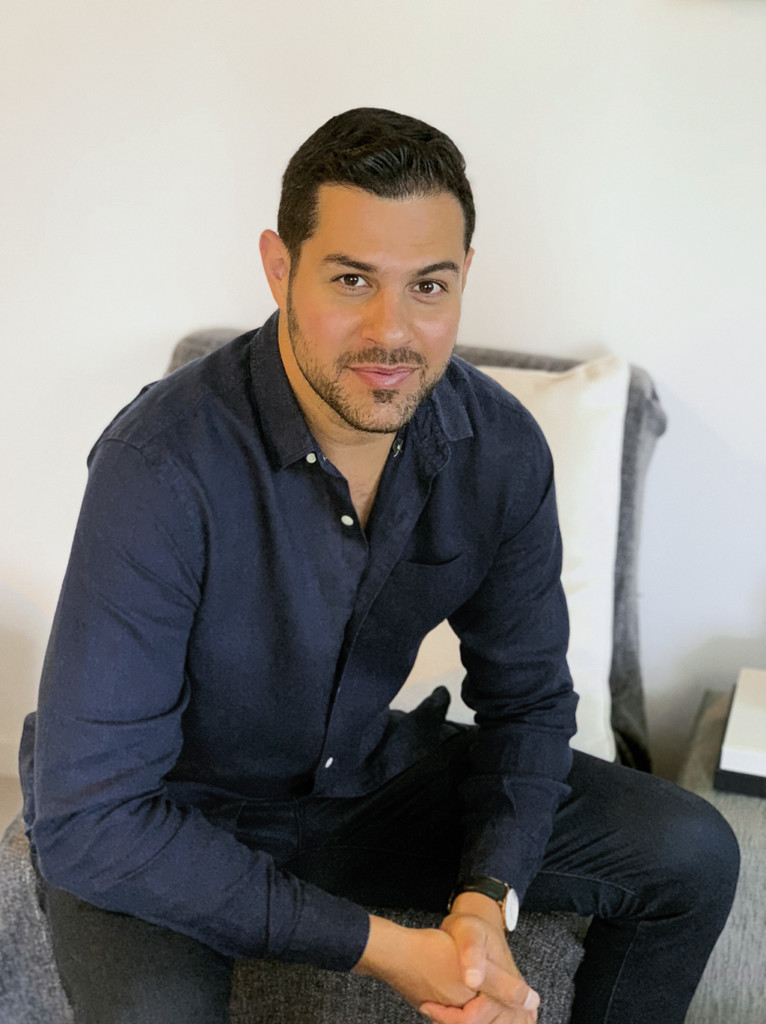The energy sector, particularly the Oil & Gas industry, requires innovation in order to remain sustainable, competitive and, of course, as environmentally friendly as possible.
For this week’s Alumni Profile, I had the pleasure of speaking with Basil Vlachou, our Design Thinking Experience alum and the IT Solutions Lead at Santos, one of the leading independent oil and gas producers in the Asia-Pacific region, supplying the energy needs across Australia and Asia.
Here’s what we chatted about:
RG – Hi Basil. Could you tell our readers a little bit about yourself?
BV – I was born and bred in Perth, WA, with Greek ancestors on both sides. I played football (soccer) for most of my life – I’m a massive Gunners fan (Arsenal FC) and I’ve travelled to two World Cups (Germany & Brazil). I also get behind the mighty West Coast Eagles in the AFL and am a season ticket holder for the Perth Wildcats. I love to travel, and the first thing I do when going anywhere outside Perth is look up and plan where I’m going to eat. I couldn’t imagine a life without great food, and don’t mind cooking a bit myself. I’m a problem solver and an entrepreneur at heart, always talking about and thinking of new opportunities and ideas, no matter what environment I’m in. In my spare time, I also work on an online business with my wife, a website for designer dress rentals, called All The Dresses.
RG – It’s pretty clear you like to keep busy. What about your job, what do you do there?
BV – As IT Business Solutions Lead at Quadrant Energy (very recently Santos), I am a central point for capturing new opportunities with an IT flavour from throughout the business. I help the business assess the opportunity and move it forward for prioritisation. I then help guide the initiative through analysis, solution evaluation, design and implementation.
RG – In your opinion, why is innovation important in the Oil & Gas industry?
BV – In Oil & Gas, the industry is being challenged by a global push to reduce environmental impact. It is also faced by large fluctuations in spot market prices. Innovation can unlock processes and systems that can withstand these challenges, and ideally turn these challenges into opportunities that can be taken advantage of. Technological innovation can make projects or opportunities that may not have been commercially feasible into profitable projects. There is no great differentiator in the end product, and an individual company has little control over the price. Therefore, we are always under pressure to reduce costs or maximise the use and value of our assets. Innovation will help us do this. Of course, safety is also a crucial part of our business. No amount of safety-related incidents is acceptable, and innovation can create ways of doing business that eliminate risks to personal safety entirely – for example, by taking humans out of high-risk areas completely.
RG – When was the first time you heard about Design Thinking?
BV – About three years ago when a supplier of ours invited me to attend a workshop. I couldn’t make it, but it got me Googling!
RG – Well, Googling has certainly paid off as you have now attended Echos’ Design Thinking Experience course. How do you think the knowledge you brought back to your company can positively impact your industry?
BV – The industry will often apply the approach and mentality to developing a new well or a new processing facility to other projects within the business, including those related to IT. History has shown how many IT projects following traditional approaches have failed, and a large part of it comes down to a lack of understanding, consideration & engagement of end users and other stakeholders. In addition, there is often a belief that careful planning will always result in a successful solution. Prototyping and building to learn are not frequently used, and large investment is put into products and solutions based on assumptions that have not been tested using these techniques. I hope Design Thinking will help us design solutions that our workforce (who is usually the customer) not only adopts, but loves, and in turn delivers value for the business.
RG – What were your biggest learnings during Echos’ Design Thinking course?
BV – I was so surprised at what can be achieved in such little time through design thinking techniques, in particular in ideation and prototyping. Whilst I was already well versed in the benefits of understanding users, I am used to spending a lot of time understanding, documenting and validating requirements prior to evaluating possible solutions. The mindset that prototyping is to diverge, not converge, and the “build to think” mentality was relatively new to me and after putting it into practice during the Design Thinking Experience course, I could see the benefits of it first-hand. Being in a class where I was the only male, I also learned more about the value a female touch can bring, particularly in Design Thinking. A significant part of the methodology is about understanding the emotions of users and being empathetic towards them; something women are typically better at! I particularly liked the concept that the journey to a brilliant solution goes through a cycle of brilliant, boring and absurd ideas. That is something that stuck with me!
RG – That’s true, you were the only male in your group – I think this is the first time this happens in one of our courses, so I’m it added an extra layer to your experience! Did you learn anything new about yourself whilst attending the courses?
BV – I think it applies to everyone, but I learned that I can really achieve things by just jumping in and doing it, especially when you apply some time pressure to it. I don’t need to know every detail or deliver the perfect outcome to be able to produce something of value. There is value in learning too, and building, trying stuff is one way to learn.
RG – Are you currently applying using Design Thinking methodologies to a specific project that is worth sharing?
BV – We have planned a scope of work which will use several Design Thinking tools, and most importantly, the mindset, to discover how the use of mobile technologies (e.g. tablets, wearables, trackers) can help our field workers at our remote operating facilities. We have recently implemented Wi-Fi across one of our major facilities which will become an enabler for this. The plan is to visit these facilities in person to get a better understanding of the day in the life of our field workers by conducting interviews, observing behaviours and recording their pain points. We will also conduct ideation workshops, asking end users to go wild with their ideas and what’s possible. We will be taking some consultants with us with the skills and tools to be able to digitally prototype ideas in a rapid way. IT and software projects within the organisation have largely been driven by head office and management in the past, and we are hoping that this approach will result in the discovery of ideas and implementation of solutions that will receive higher acceptance by end users and unlock value for the business through productivity gains, efficiencies and improved safety.
RG – That’s very impressive. What pearls of wisdom would you share with someone who is starting their innovation journey through Design Thinking?
BV – Design Thinking is as much about a mindset as it is about the tools and steps. You will probably find that you don’t have the opportunity or budget to run an end-to-end project, using all the tools from the Echos course. Look for ways to utilise the concepts in existing projects. Pause and think at various moments to see if any design thinking techniques could apply and add value. A focus on the end user and the human-centred aspects is key in any project; not just ones labelled a “Design Thinking Project”. Pay special attention to how users feel and how they behave, not just what they say! Try to strike a relationship where the user speaks to you openly and from the heart. In many scenarios, a user tends to tell you what they think you want to hear or what they think is the right thing to say. I feel that an organisation needs to be ready and key stakeholders need to buy-in to Design Thinking as a methodology before a full-scale Design Thinking project can be undertaken. Gradually introducing different tools and techniques into other projects can go a long way to increasing that buy-in and helping stakeholders realise the benefits it can bring.
RG – Is there anything else you’d like to share about your experience?
BV – Nothing else really, other than that I would highly recommend it to anyone! Ricardo was so knowledgeable, and you could tell his responses to any curly questions from the class came from first-hand experience, not just theory. I thoroughly enjoyed the course, particularly how interactive and hands-on it was. It really was an “Experience”, as the course name suggests.
RG – Finally, I like to end my interviews by asking the person to share a quote that inspires them. Could you share yours with us?
BV – “Everything you’ve ever wanted is on the other side of fear.” Also, a couple of very relevant ones I heard recently: “If you have always done it that way, it is probably wrong.” and “The next big thing is the one that makes the last big thing usable.”
RG – Thank you so much, Basil. It’s been a pleasure to speak with you.
BV – Thank you!
—
Follow us on social
Instagram – Facebook – LinkedIn
How Can We Help?
For training and Innovation Journeys in your company: check out our in-house course offering
For upcoming courses in your region: visit our website.
If you have a special project and would like to use Echos’ consultancy services: send us an email.
Want to speak to a real person? Call us on 1300 502 006



